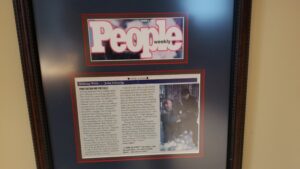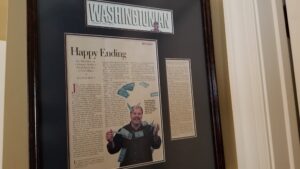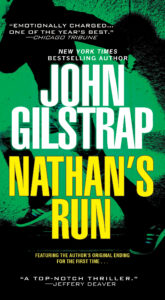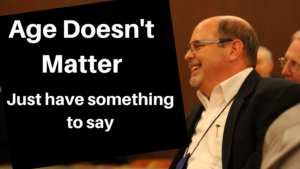I don’t think any creative person follows a straight line to a creative career. Motives and motivations and inspirations come from all kinds of angles. We bring our childhoods with us, along with our triumphs and lost loves. Recently, I’ve found myself in a more pensive mood than usual.
Last week, I binge-watched a few episodes of “Mannix“, starring the always-cool Mike Connors. As a kid, I thought that was one of the most riveting shows on the air. For those who are not old enough to remember, Mannix was a Los Angeles private investigator who got thoroughly beaten up pretty much every episode, and was shot more than 20 times in the same shoulder. He lived above his cool office in a cool neighborhood. His super-capable secretary, Peggy (Gail Fisher) was, I believe, one of the first African American characters of any real substance on television.
As I watched, I got smacked with a realization that came out of nowhere: Joe Mannix and Peggy are the inspiration for my characters Jonathan Grave and Venice Alexander. Even down to her race and the fact that she’s a single mom of one son! Honestly, this had never occurred to me, but now that I’ve seen it, I don’t think there’s any denying it. Jonathan lives below his office, but still. The subconscious stirs quietly and for a long time, I guess.
But wait, there’s more. With my brain primed for nostalgia, as I watched “Stand By Me” for the scumpty-seventh time (it’s one of the movies from which I cannot turn away), I was hit with another writing revelation. But first, some background . . .
After graduating from William and Mary in 1979, I got a terrible job working for Construction Magazine, a trade journal that was all about making advertisers look good. I was in a dark place writing-wise, and had pretty much abandoned my childhood dream of becoming a novelist. As the years progressed, I got consumed by grad school, the explosives business and the fire and rescue service and husbandhood and fatherhood. I’d say that writing went to the back burner, but in reality, it was off the stove entirely.
ENTER: 1986 and the movie, “Stand By Me”. An anthem to boyhood, the movie is bookended with scenes of the unnamed narrator as an author (played by Richard Dreyfus), writing the story of his great childhood adventure. We see the author/narrator typing away on the very first word processor I’d ever seen. The sound of the keys was melodic to me. The writer is also a dad, who’s made promises to take his kid and his friends swimming. Dad is distracted by the story he’s telling, though, and his son gets annoyed. The boy explains to his friend words to the effect, “He gets like that when he’s writing.”
Then in one of the most inspiring movie scenes ever, after the roller coaster that is the story, the film closes without dialogue. We hear the wonderful clicking sound of the keys as old-school white letters against the blue screen type, “I never had friends later on like the ones I had when I was twelve . . . Jesus, does anyone?”
That was my moment of clarity. The writer on the screen was living the life I wanted to have. Despite professorial opinions to the contrary when I was in undergraduate school, I was convinced that I had talent. I realized that the dream wasn’t going to just happen, though. The stories in my head were not going to write themselves.
So I pulled my grad school typewriter–a cheap electric–out of the closet and I wrote crap. Utter awfulness. I was rusty, I told myself. I forced myself to write that first book all the way to the end, and when I read it, I realized two things: 1) It needed a page-one rewrite, and 2) I didn’t like the story enough to do that. So, I wrote a second bit of drivel that was decidedly less terrible than the first, and it had some good moments. Number Three had more good moments than bad, but I knew it still wasn’t ready for prime time. The language was too stiff, too stilted. I don’t think I knew at the time that the problem had a label–voice–but I knew that that’s what was missing.
And I was really busy with life. By then–1994–I’d added CEO of a consulting company to the list of things I dealt with every day.
One night, feeling guilty about not writing, I re-read Different Seasons by Stephen King, the collection of novellas that included The Body, which was the source material for “Stand By Me.” No one on the planet has a stronger narrative voice than King, and as I was reading, it hit me: He doesn’t write like a writer. He writes like a fascinating friend telling you a story. He uses vernacular in his narration. I realized that King, the writer, is invisible in all of his stories. Even when we’re in the third person, every scene is narrated in the voice of the point-of-view character.
So, in August of 1994, I set to work on what would become Nathan’s Run. I wrote the story as if I were telling it to a friend. I kept my writerly vocabulary to a minimum and tried my best to bring characters to life on the page. Four months later, when the book was finished, no one was more startled than I that I liked the final product.
That was 21 books ago, and yes, I do zone out of the real world when I write. And even as I type this blog, I love the sound of those keys as they create words on the screen.
What say you, TKZers? Do you have unlikely inspirations that drove you to become a writer?





